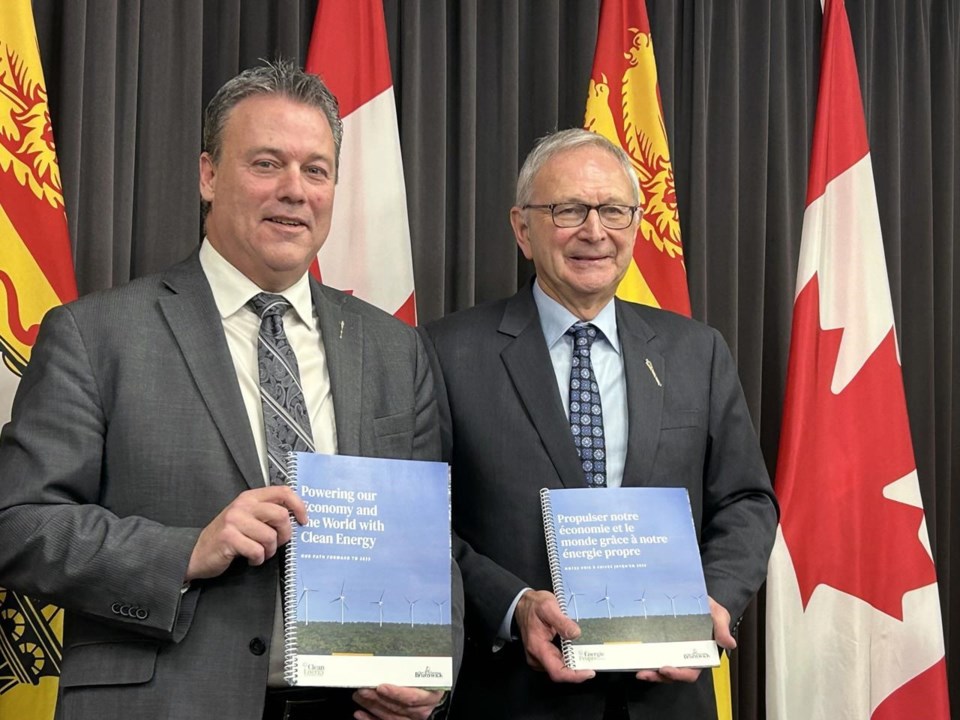FREDERICTON — New Brunswick's Progressive Conservative government has released its strategy to become carbon neutral within 12 years through the use of nuclear, wind and solar energy.
Officials didn't release a cost estimate for the energy plan on Wednesday, saying only that it will require federal funding to be successful.
"We will be looking to (the) federal government to assist and join us in funding some of the projects, some of the research," Natural Resources Minister Mike Holland told a news conference.
Holland said the province will lean more heavily on energy from wind and small nuclear reactors to decarbonize its economy. The first small nuclear reactor should be operational by 2031 and the second in 2035, Holland said.
As New Brunswick's population grows, the plan will add about 1,000 megawatts to the province's grid. Of that, 600 will come from nuclear.
"If we are in a situation where climate change is real, and if we are going to address it, and if we have electrification needs or capacity, then it behooves us to put a strategy together," Holland said.
New Brunswick imports about 35 per cent of its electricity, primarily from Quebec and Maine, while the rest is generated in province — 24 per cent from fossil fuels, 22 per cent from renewable sources and 19 per cent from nuclear.
The plan proposes that by 2035 the province would get 38 per cent of its energy from nuclear sources, 23 per cent from wind, 19 per cent from imports and 11 per cent from hydro. The remainder would come from a mix of solar, biomass and fossil fuels.
"Is it going to be easy? No, it's not," Premier Blaine Higgs said. He said the plan is designed to meet targets set by the federal government, adding that its success will depend on advances in technology for small modular nuclear reactors.
Opposition leaders called the energy plan superficial. Green Leader David Coon said New Brunswickers want to see their homes powered affordably and reliably, which hasn't been the case.
"Doubling the amount of nuclear capacity ... means we're going to double the debt, double the rates, because it is the most expensive form of electricity on the planet," he said.
Liberal Leader Susan Holt commended the government for bringing in a document that considers different sources of electricity but said it lacks specifics.
"Half of it was a review of the past and what was forward-looking was thin, short on details, short on figures, or any commitment to timeline," she said.
This report by The Canadian Press was first published Dec. 13, 2023.
The Canadian Press

